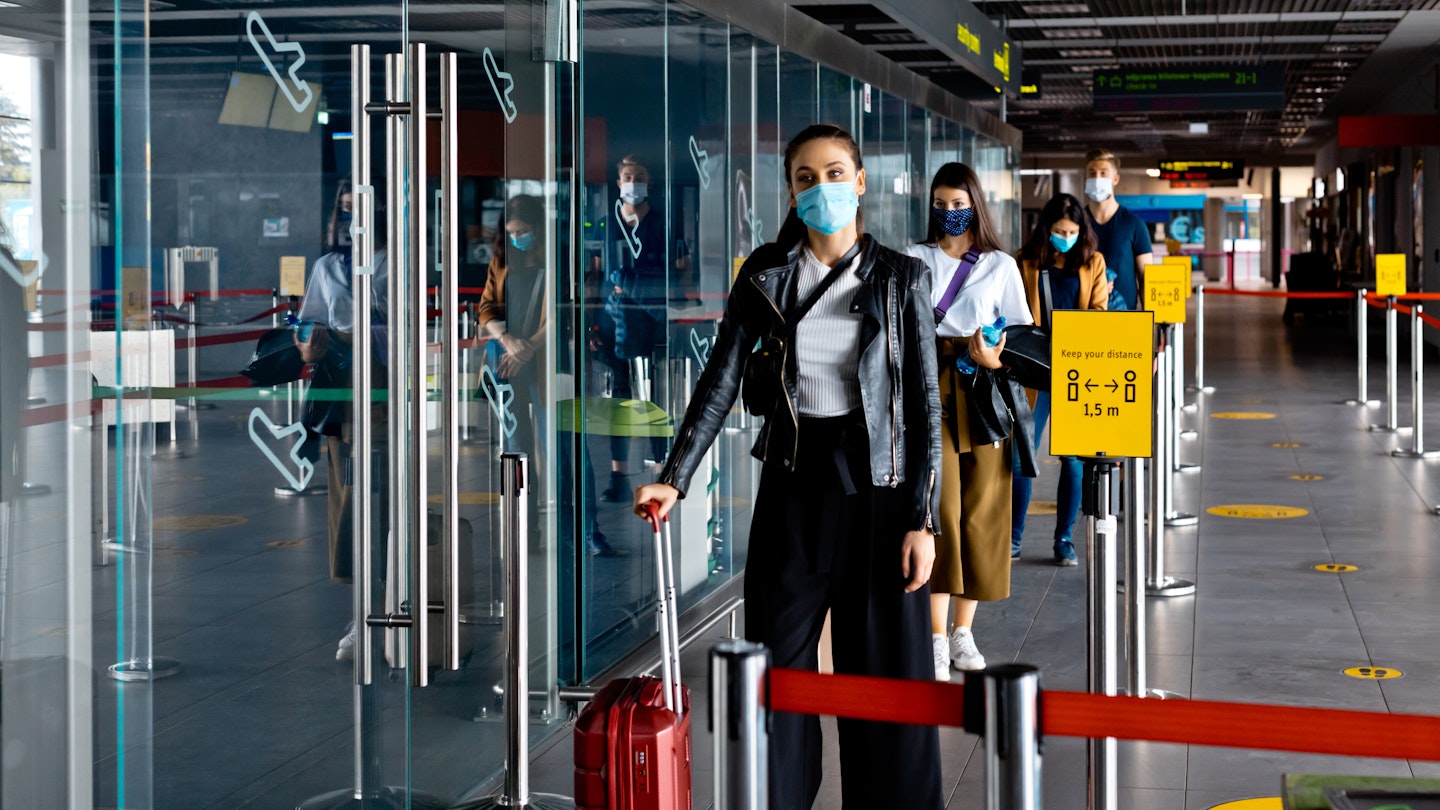Airline Face Mask Policies During COVID-19
As global travel begins to open up post-lockdown, the controversy over face masks has moved from city streets to the skies. Airlines are scrambling to provide passengers with a clearer picture of safety measures. Some consistency is quickly emerging with mandatory mask-wearing being part of a broader effort by all carriers to keep travelers safe, consequently ensuring planes remain operational as the second surge of the pandemic unfolds in many parts of the globe.
What are the airlines saying?
United and Alaska Airlines, for instance, now require passengers, as part of a general COVID-related pre-clearance health check, to agree to wear a mask as a condition of purchasing a ticket. Aer Lingus, which operates within the AIG group that includes British Airways, has mandated that all passengers (except for children and individuals with certain medical conditions) must wear face coverings from boarding until they reach their destination terminal.
Iberia emphasizes that all passengers over the age of six must wear face masks and advises, “Passengers must change their masks at the frequency indicated by the manufacturer. Bags will be provided for the storage or disposal of used masks.” Furthermore, Ryanair informs travelers that masks will be required onboard, although passengers may lower them to eat and drink. Reports from July 1, the first day of resumed flights, indicate enthusiastic compliance among travelers on a Ryanair flight from Dublin to southern France. Remarkably, all passengers adhered to the mask guideline throughout the two-hour flight, which featured a two-thirds full plane. Such compliance is impressive, especially given the low rates of mask-wearing in public spaces in Ireland, where it is compulsory on public transport.
However, uncertainty remains regarding the consequences if a passenger refuses to wear a mask, aside from repeated requests from the cabin crew. Reports are emerging in US media about incidents involving passengers not wearing masks, with airline staff hesitant to confront them for fear of escalating tensions mid-flight.
The laws and guidelines
Countries can impose regulations regarding such matters. For example, in Morocco, failure to adhere to mask-wearing mandates in public places could result in a prison sentence of up to three months and a fine of 1300 dirhams. Notably, airlines can establish mask-wearing as a condition of service.
Is it possible that air travelers will set an example of face-mask etiquette? The industry’s umbrella bodies certainly hope so, presenting consistent messaging. Airlines for America has advised its members to ask passengers to “bring a face covering and wear it at the airport, on the jet bridge, and onboard the aircraft.” Meanwhile, the European Union Aviation Safety Agency (EASA) has released an extensive guide emphasizing “respiratory etiquette” and the necessity of face mask use, which also extends to airports.
The objections
Nevertheless, travelers do not abandon their personal beliefs at airport security. Some individuals raise objections to face masks, ranging from civil liberties concerns to skepticism about the science behind their efficacy. While misplaced, one could argue there is sympathy for the latter point.
Confusion has permeated messaging from the global scientific community since the onset of the pandemic. Initial claims suggested that people would wear masks ineffectively—touching their masks frequently and increasing transmission risks—certainly set a negative tone for mask skeptics. Additionally, early academic disputes surrounding droplet trajectory did not help foster confidence. Furthermore, during the pandemic’s early stages, there was a worldwide shortage of personal protective equipment (PPE), leading to the perception that someone wearing a mask in public could be accused of hoarding essential supplies from frontline workers.
Despite these factors, it’s crucial for travelers to recognize the authority of airlines. Private companies possess the jurisdiction to establish their own rules within specified legal frameworks, similar to the “no shirt, no service” policy often observed in restaurants at tourist resorts. These terms and conditions regarding COVID-19 health and safety restrictions are prominently displayed in their signage and online platforms. As airlines resume operations—particularly with the increase in transatlantic travel—Iberia will not be the only airline insisting that on international flights, “passengers must also complete a ‘Health Tracking Form’ and a ‘Health Questionnaire’.” After providing such extensive personal information—a stark reminder of the ongoing pandemic—wearing a face mask appears to be a minor request.




